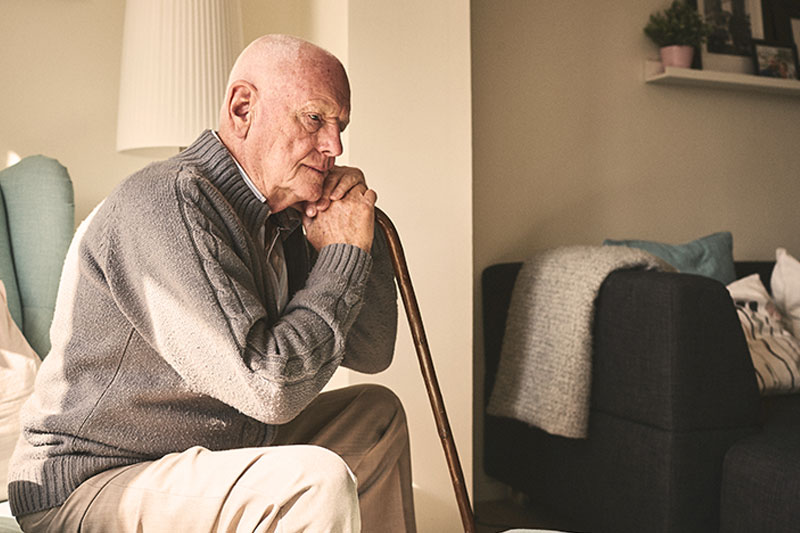
Depression in older people is not uncommon, but it’s important to remember that it is not a normal aspect of getting older.
After spending some time with family and friends and revisiting cherished traditions and memories throughout the holiday season, it is typical for a feeling of nostalgia and sorrow to set in for older adults. Even though some amount of short-term post-holiday disappointment can be expected, it is essential to be aware that it could grow into depression. Depression is a serious mental health condition that is not uncommon among seniors, but is not a normal aspect of aging.
How can you tell if a senior you love has crossed the line into depression – and, what can you do to assist?
First, it’s important to know the risk factors for depression in older people, such as:
- Loneliness and isolation
- A sedentary way of life
- Stress
- Chronic health issues
- Sleeping problems
- Addictions
- A family history of depression
If an older person you love fits into any of those descriptions, or if you are simply concerned that the senior could be on the verge of depression, watch out for these red flags:
- Persistent feelings of hopelessness, sadness, anxiety, emptiness, guilt, or low self-esteem
- Fidgeting, irritability, or restlessness
- A lack of interest in socializing or engaging in previously-enjoyed activities
- Fatigue and listlessness
- Changes to eating or sleeping routines
- Problems with memory, decision-making, or concentration
- Thoughts or discussions about the topics of death or suicide
If you suspect depression in older people you care about, take action immediately. Depression shouldn’t ever be shrugged off as something the person needs to “get over.” It is a chronic condition that needs medical intervention.
A physician will have to evaluate the senior, and can then develop a treatment plan, which could include:
- Medications: There are a number of effective prescriptions available that can make a huge impact on the way the senior feels by stabilizing mood-affecting hormones.
- Therapy: A psychologist or other licensed mental health care specialist can help the elderly individual talk through emotions and use treatment approaches such as cognitive-behavioral therapy.
- Brain stimulation: If the person is not reacting well to traditional depression therapeutic treatments, ECT or rTMS might be considered, which use electrodes or magnets to impact the brain directly.
Additionally, there are steps you can take to help prevent depression in the seniors you love, such as by encouraging:
- Socialization and engagement in pleasurable activities, such as exercise. (Participating with the senior will offer extra motivation and assistance.)
- Following a balanced and healthy diet and getting at least seven hours of sleep each night.
- Speaking up about their mental health worries and needs.
An in-home senior care companion from Home With You Senior Care, a provider of Hampstead home health care services, can be beneficial for seniors who are at risk for or experiencing depression. Our care providers are thoroughly trained and experienced in meeting a wide range of senior care needs in the home, while providing the cheerful companionship to give socialization a boost and to bring a spark of happiness to every day.
Contact our aging care experts at 410-756-0959 for a free in-home consultation for more information on how we can help enhance overall health and wellbeing for the seniors you love with individualized care in the home. Visit our Locations Service page for a full list of the areas where we provide care.
